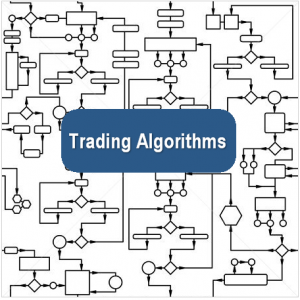Trading Algorithms: What Are They and How Do They Work?
Trading Algorithms, also called automated investing, black-box investing, mechanical investing or algo trading, is nothing more than a set of trading rules and criteria that tell an electronic platform when enter and exit positions so you do not have to. Keep in mind all trading algorithms should have someone watching over the system if something goes wrong.
Algorithms can be configured for such things like trends, cycles, market timing of tops or bottoms, for entering orders or to manage open positions. In most cases they can execute the order without human intervention.
Success in all areas of business and life requires strategies/systems in place and trading is no different.
Interesting History Behind Trading Algorithms
Algorithmic trading is widely used by large institutions like mutual funds, pension funds, private equity firms, and other investor-driven institutional traders. Large institutions have large order volumes. Through unique trading algorithms designed to divide large trades into several smaller trades to reduce the market impact when executed.
The sell-side trader is on the other side of the equation, such as market makers and some hedge funds. They provide liquidity to the market by generating and executing trades automatically with their own unique trading algorithms.
There is a special class of algorithmic trading called “high-frequency trading” (HFT). It is this type of system has given algo trading, black box, automated trading a bad reputation. These are systems, in which computers make intricate decisions to initiate orders based on information that is received electronically and makes a trading decision before any human trader is capable of processing that same data. This has resulted in a dramatic change of the market moves on an intraday basis, particularly in the way liquidity is provided.
Trading algorithms can be used in any investing or trading strategy like market making, inter-market spreading, arbitrage, or for speculation like trend following.
American and European markets typically have a higher proportion of algo trades than other markets. Estimates say that in 2008 as high as 80% of the volume was done through trading algorithms in some markets.
Algorithmic and High-Frequency Trading “HFT” has been a hot subject since the 2010 Flash Crash with the U.S. Securities and Exchange Commission and the Commodity Futures Trading Commission saying algorithms contributed to some of the volatility.
Conclusion on Trading Algorithms:
If we ignore the HFT systems which focus on trading strategies that are simply not possible for an individual to own and manage, we are left with trading algorithms which are must slower in nature and less complex to build, test and operate.
As an individual thinking about using ALGOTRADES automated investing system it is important to know that our system is nothing more than our investing strategy rules for market timing, trade entry and position management executed by a computer for better performance and consistency.
ALGOTRADES – ALGORITHMIC TRADING SYSTEM FOR INDIVIDUAL INVESTORS!
Chris Vermeulen
www.AlgoTrades.net


Leave a Reply
Want to join the discussion?Feel free to contribute!